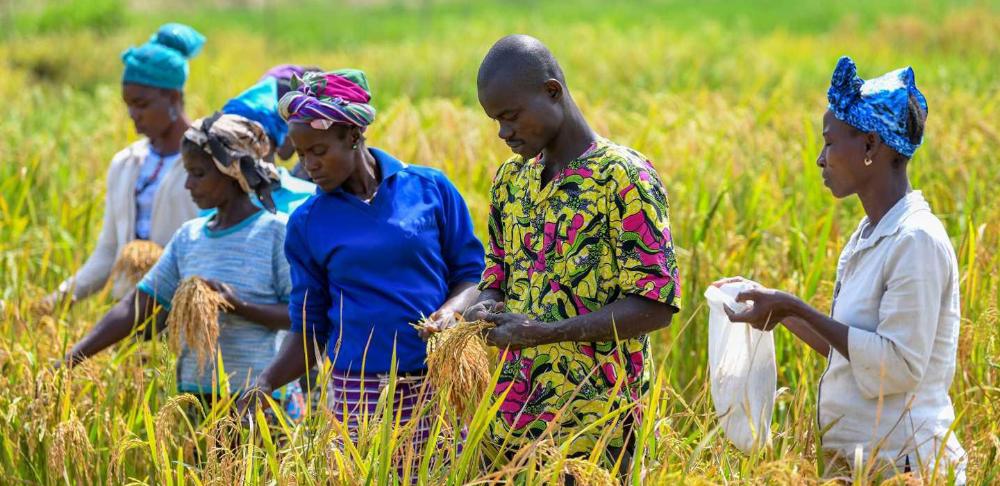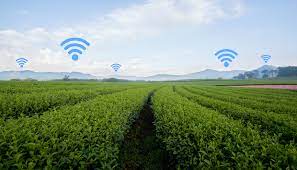The modern agriculture industry is heavily reliant on technology, with farmers using a range of digital tools to improve their productivity and efficiency. From precision agriculture systems that provide real-time data on crop yields and soil conditions to livestock management systems that track the health and productivity of their animals, technology has become an integral part of the agriculture sector.
However, with the increasing amount of data generated by these technologies, comes a growing concern about agricultural data privacy and security. As farmers collect more and more information about their operations, it is critical to ensure that this data is protected from theft, misuse, and unauthorized access.
Challenges of Agricultural Data Privacy and Security

One of the biggest challenges in the area of agricultural data privacy and security is the lack of standardized regulations and guidelines. With the rapid pace of technological advancements, many countries have yet to establish clear regulations and guidelines for the use and protection of agricultural data. This makes it difficult for farmers to understand their rights and responsibilities with regards to their data, and can lead to confusion and uncertainty about how their information is being used.
Additionally, many farmers are not aware of the importance of securing their data, and may not have the necessary resources or knowledge to effectively protect their information. This makes them vulnerable to data breaches and cyberattacks, which can have serious consequences for their businesses and the overall agriculture industry.
For example, a data breach could result in the theft of sensitive information, such as crop yields, soil conditions, and financial data, which can be used to compromise the farmer’s operations and financial stability.
Another challenge is the risk of data misuse by third-party companies. Many agricultural technology companies collect and store vast amounts of data from farmers, which can be sold or used for marketing purposes. This raises the issue of data ownership and control, as farmers may not have control over how their data is used or shared.
For example, a farmer may not be aware that their data is being sold to a third-party company, or that their information is being used for marketing purposes without their consent. This can compromise their privacy and cause them to lose trust in the technology companies they are working with.
Opportunities in Agricultural Data Privacy and Security
Despite these challenges, there are also opportunities in the area of agricultural data privacy and security. By taking a proactive approach to data privacy and security, farmers can protect their information and ensure that their data is used responsibly.
One of the key opportunities is the development of new technologies and solutions that help farmers secure their data. For example, blockchain technology has the potential to provide a secure and transparent way of managing agricultural data, allowing farmers to control who has access to their information and ensuring that their data is used responsibly. Additionally, the use of encryption and secure data storage systems can help to protect farmers’ data from theft and unauthorized access.
Another opportunity is the creation of data privacy and security regulations and guidelines. By establishing clear regulations and guidelines for the use of agricultural data, governments, and industry organizations can help farmers to better protect their information and ensure that their data is used responsibly. This can provide farmers with greater peace of mind and can encourage more widespread adoption of technology in the agriculture industry.
Education and Awareness

Another important aspect of ensuring the privacy and security of agricultural data is education and awareness. Many farmers are not aware of the risks associated with the collection and use of agricultural data, and may not understand the importance of securing their information.
By educating farmers on the importance of data privacy and security, and by providing them with the knowledge and resources they need to protect their information, the agriculture industry can help to reduce the risk of data breaches and cyberattacks.
This education and awareness can be achieved through various means, such as training programs, workshops, and informational resources. Additionally, technology companies and industry organizations can play an important role in promoting data privacy and security by providing farmers with clear and concise information on how their data is being used, and by offering solutions and tools to help them secure their information.
Conclusion
In conclusion, the increasing reliance on technology in the agriculture industry has brought about the need for robust and effective data privacy and security measures. While there are challenges in this area, there are also opportunities for farmers to protect their information and ensure that their data is used responsibly. By taking a proactive approach to data privacy and security, the agriculture industry can continue to thrive and benefit from the advancements in technology.
Education and awareness, along with the development of new technologies and the establishment of regulations and guidelines, can help to ensure the privacy and security of agricultural data and can promote the widespread adoption of technology in the agriculture sector. Ultimately, this will benefit both farmers and the overall agriculture industry, as farmers will have greater confidence in the technology they use and the data they collect, and the industry will continue to innovate and grow.











